Hi lovely mamas! My name is Martina Michevska – I’m a certified formulator of organic skincare and the co-founder of pregnancy & postpartum organic skincare Aeléa Organics, where we are currently perfecting our first products to launch in the beginning of next year. I was kindly asked by Kari to share my expertise and write a guest blog about a topic I’m very passionate about and one that is important to so many mamas-to-be: pregnancy skin concerns and how we can prevent, address or relieve them – the natural way!
Common pregnancy skin concerns
Pregnancy is such a magical and mind-boggling experience for every mama-to-be! And, as our lives are about to be changed forever, us ladies are bound to experience so many changes in our bodies – some positive, some not so much – as our bodies embrace the miracle of creating a new life. And with all these changes we experience, we should not forget about the biggest organ we have – our skin!
Let’s have a look at some of the most common pregnancy skin concerns, and what we can do about them:
1. Stretch marks
Probably one of the most common pregnancy skin concerns among mamas. But do we know what they really are, how do they appear, and whether we can get rid of them if they happen to pay us a visit?
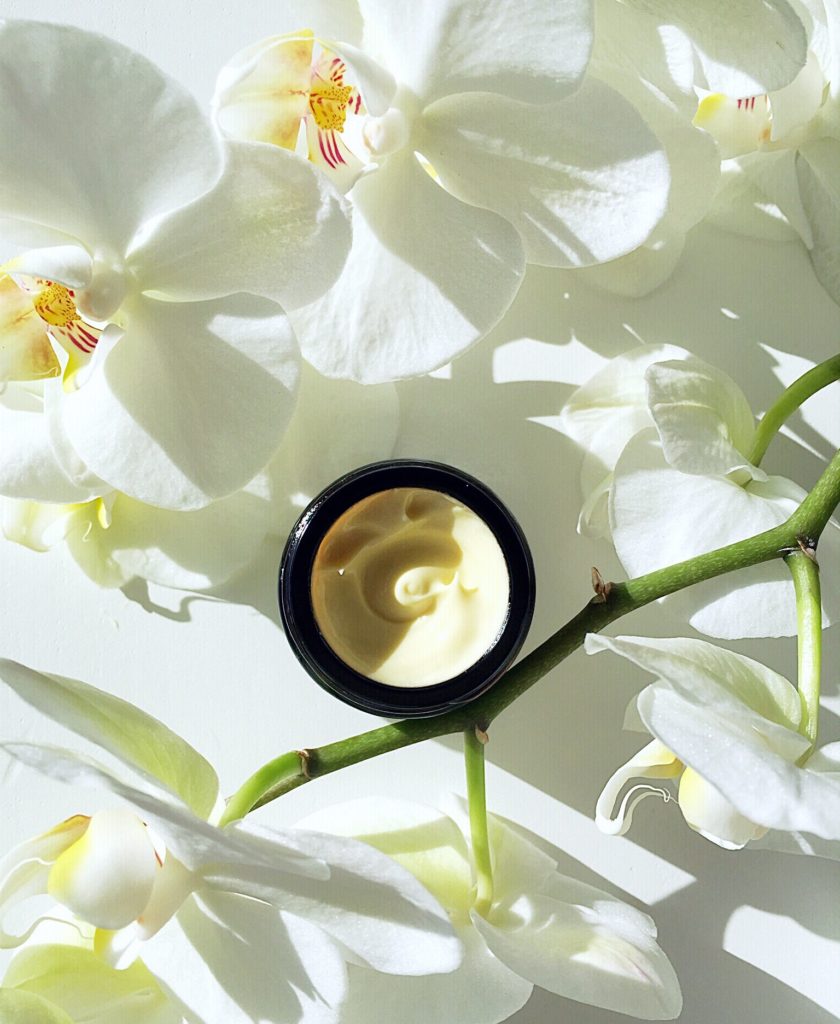
What are they?
Stretch marks are tears of collagen and elastin fibres in the dermis (the middle key layer of our skin, under the epidermis). They affect between 50-90% of pregnant ladies and can appear as pink-purple lines on the abdomen, breasts, buttocks, thighs and upper arms. Although they will eventually fade and flatten to pale or flesh-coloured marks over time, unfortunately stretch marks will not completely disappear.
Why do they appear?
While the exact cause remains unclear, it is considered to be related to the stress on the skin caused by rapid stretching, as well as hormonal changes. There are numerous studies on stretch marks which suggest various possible risk factors – maternal & family history, younger maternal age, higher weight gain during pregnancy and higher baby weight at birth.
Can they be removed?
There are numerous creams, butters, gels, lotions, etc. claiming that they can remove stretch marks, but unfortunately there is no evidence that such treatments are effective AFTER the formation of stretch marks.
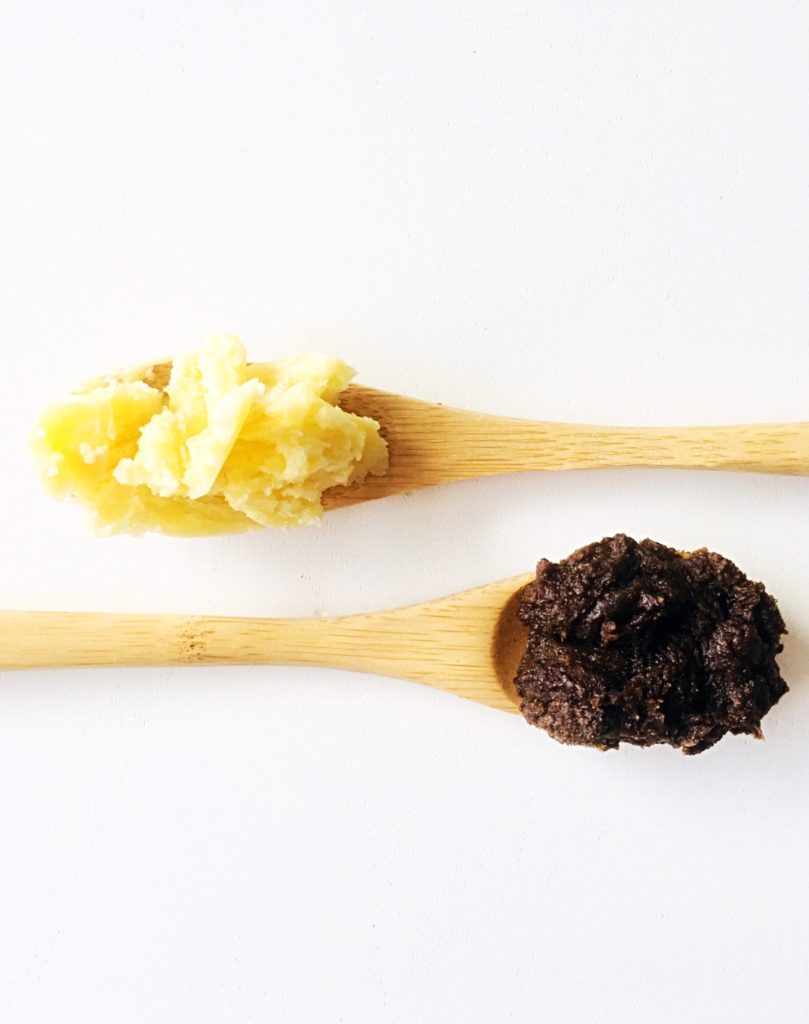
Can I prevent them?
While preventing stretch marks might not actually be in your control due to some of the reasons mentioned above, keeping the skin hydrated and moisturized is key, and there are certain natural ingredients that can help prevent them. Let’s have a look at some examples*, all of which are considered safe for topical use during pregnancy:
* All ingredients are only mentioned very briefly, because I can talk about ingredients all day long and I don’t want to hijack Kari’s wonderful blog space! If you’d like to read more details about a certain ingredient, please head over here where I have a weekly post about various natural ingredients.
Note: always consult your doctor first before use!
- Shea butter– fantastic moisturizing properties, anti-inflammatory and can help improve skin elasticity
- Pracaxi oil– a great emollient, significant wound-healing properties, can help maintain skin elasticity
- Pomegranate seed extract – with up to 79% punicic acid, it has cell-regenerating properties, acting as an aid to increase skin elasticity
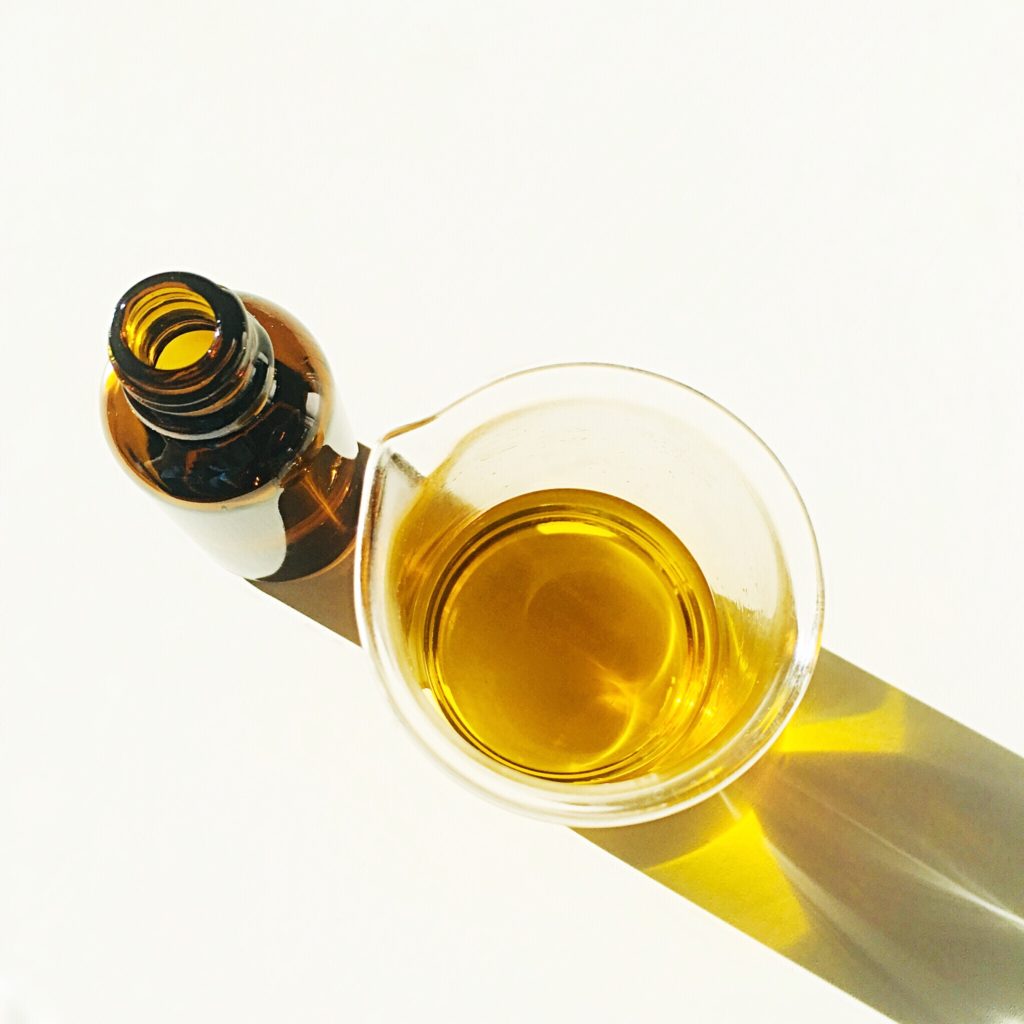
- Marula oil – helps protect the barrier function of the stratum corneum(the uppermost layer of the epidermis) and helps improve the skin’s ability to retain moisture
- Natural vitamin E – a potent antioxidant, it helps promote healing and skin regeneration
- Bisabolol– extracted from German chamomile, highly anti-inflammatory, can help promote skin regeneration
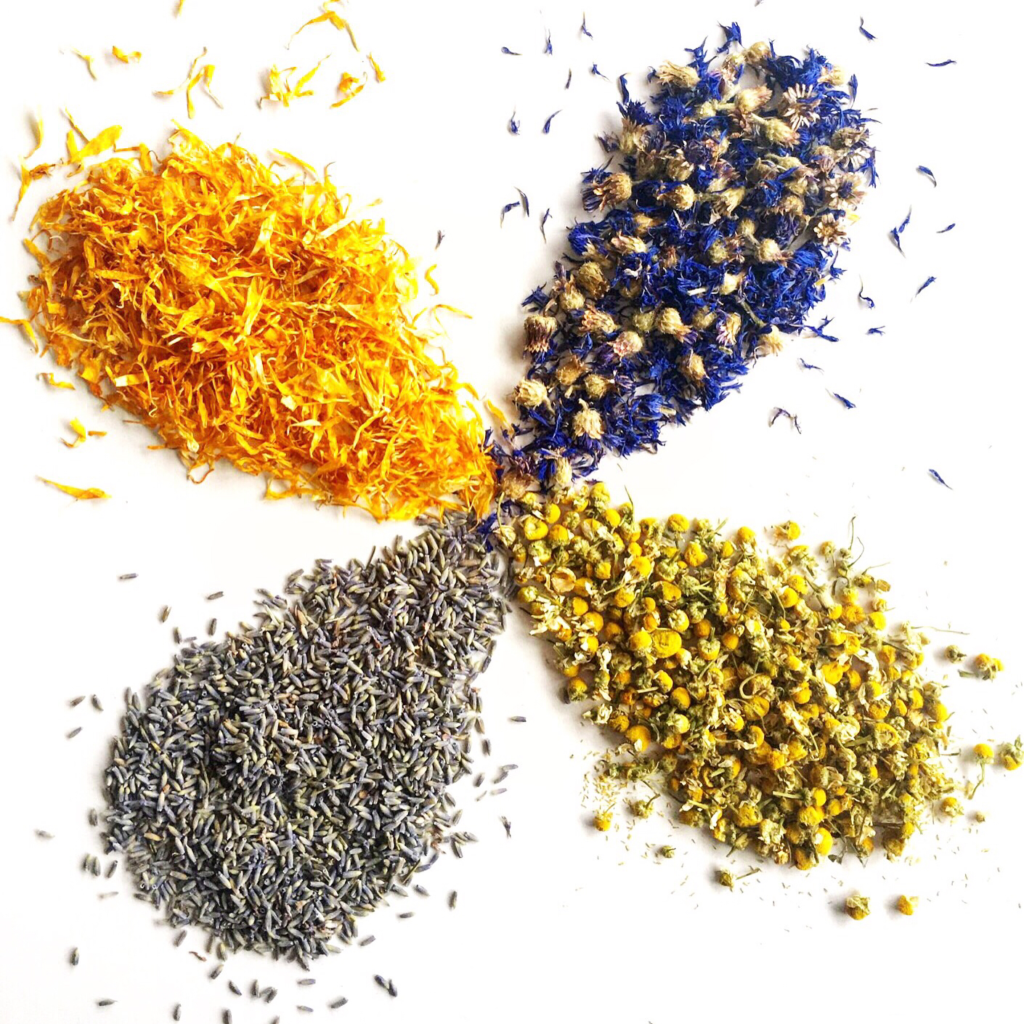
- Cupuaçu butter – anti-inflammatory and wound-healing properties, as well as great moisturizing properties that can help improve skin elasticity
- Helichrysum hydrosol – anti-inflammatory, wound-healing and can help regenerate skin tissue
- Wheat germ oil– great moisturizing properties and can help maintain skin elasticity
2. Acne
We all know that pregnant ladies will get that lovely coveted “pregnancy glow”, right? Wrong! While this statement is true to some extent, not all pregnant mamas are so lucky to have this experience.
Why does it happen?
Studies show that in normal pregnancies blood volume increases with up to 40-50%, which therefore leads to an increased blood flow. This, together with a surge in hormones, can indeed contribute to a healthier looking and glowing skin. But it can also result in breakouts, and if you already have acne-prone skin – it could actually get worse.
Also read: 10 tips for Pregnant moms
Can I prevent it?
Achieving healthy skin should always be a holistic approach, starting from inside-out. This includes healthy diet, sufficient water intake, regular exercise, no overuse of make up, no smoking or alcohol (which are a no-no during pregnancy anyway), sensible sun exposure always with SPF on.
In addition, as tempting as it might be to indulge and double up on cake, ice cream and cookies, etc. – simple carbohydrates in general – it’s highly recommended to limit your added sugar intake as much as possible, as it has been proven to make acne worse, especially combined with the surge of hormones.
Can it be improved?
If you get acne during your pregnancy, don’t despair mama! Certain activities and natural goodies might be able to help, let’s have a look:
- Daily cleansing of the skin with mild products, even if you do not wear any make up during the day. This is extremely important for 2 reasons – 1) it helps remove dirt accumulated on the skin during the day, which therefore decreases the chance of pores clogging up and making a mess, and 2) it prepares the skin for the application of your skincare products, so they can properly do their job.
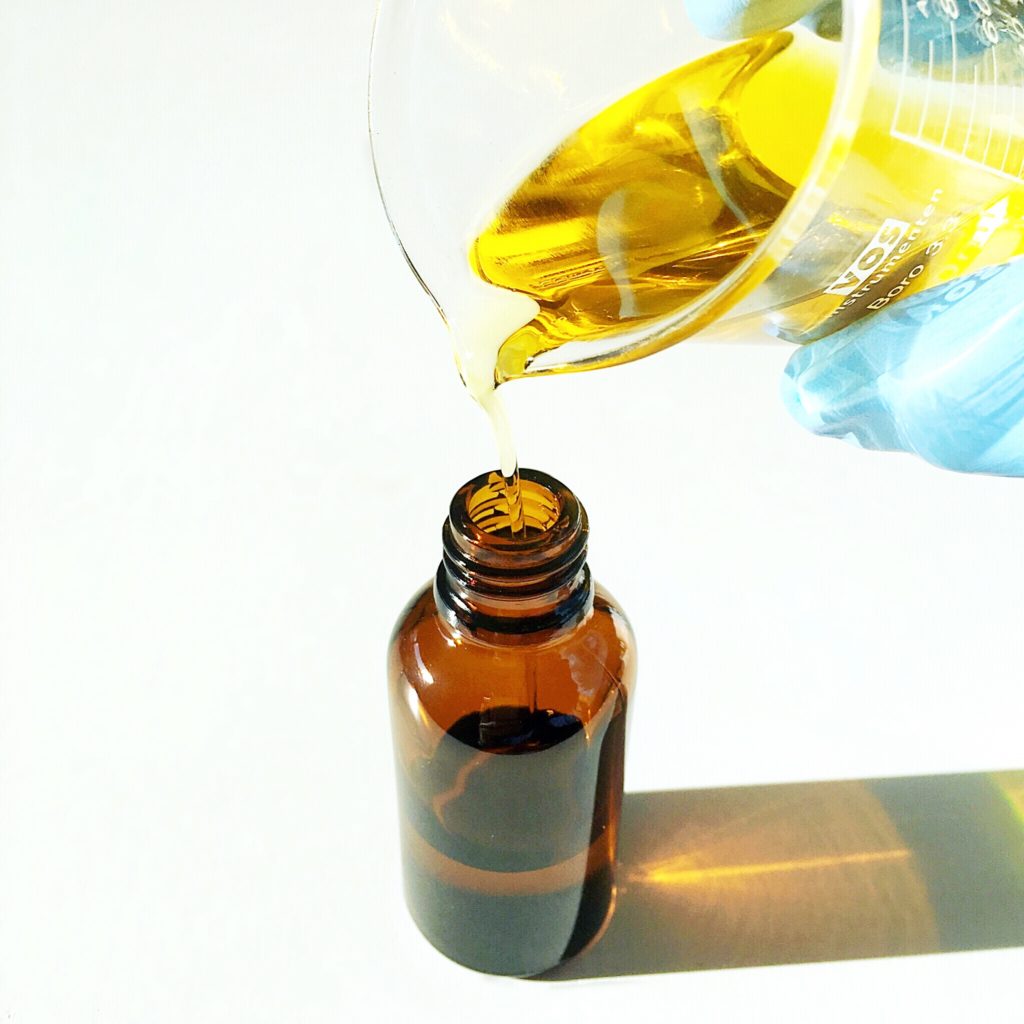
- Facial oils – it sounds counter-intuitive to put oil on your face if you have oily or acne-prone skin, right? Exactly the opposite! A carefully formulated natural facial oil designed to help with acne could really have great results. Here are just a few examples of some fantastic natural oils, all of which are considered safe for topical use during pregnancy:
- Tamanu oil – strongly anti-inflammatory, it has potent wound-healing and skin-regenerative properties
- Hemp seed oil– rich in gamma-linoleic acid, which gives the oil its anti-inflammatory and wound-healing properties
- Pumpkin seed oil– rich in zinc which helps regulate skin sebum (the oil naturally produced by our skin)
- Jojoba oil– its chemical composition is the closest to human skin sebum than any other plant oil, it has anti-inflammatory, anti-microbial and sebum-regulating properties
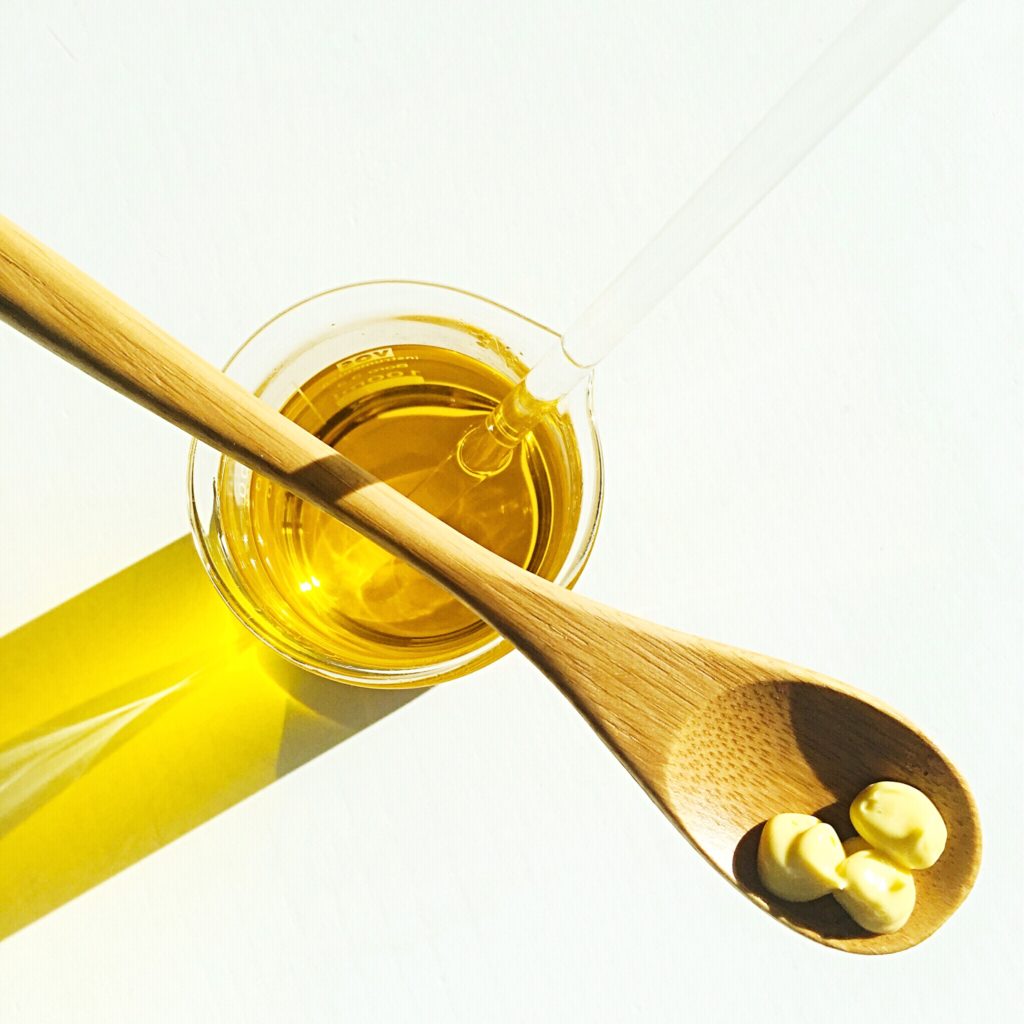
- Murumuru butter– rich in lauric acid, it has strong antimicrobial and antibacterial properties. A study showed the potential of lauric acid as an alternative to antibiotic treatment of Acne Vulgaris
- Sea buckthorn fruit oil– rich in palmitoleic acid, rarely found in vegetable oils, antimicrobial properties
- Tea Tree essential oil**– yes, some essential oils should be avoided during pregnancy, but there are also some EOs that are perfectly safe for use, especially when in a professionally formulated product! Widely used for acne treatment, tea tree oil has potent anti-microbial and anti-inflammatory properties, and has been shown to significantly improve mild to moderate acne
- Fragonia essential oil**– often compared to tea tree oil, and is considered gentler on the skin; it has significant antimicrobial activity
- Rosemary essential oil**– potent antimicrobial and anti-inflammatory properties
- Lavender essential oil**– highly praised oil with strong anti-inflammatory and wound-healing properties, well-documented by numerous studies
**Never use essential oils undiluted!
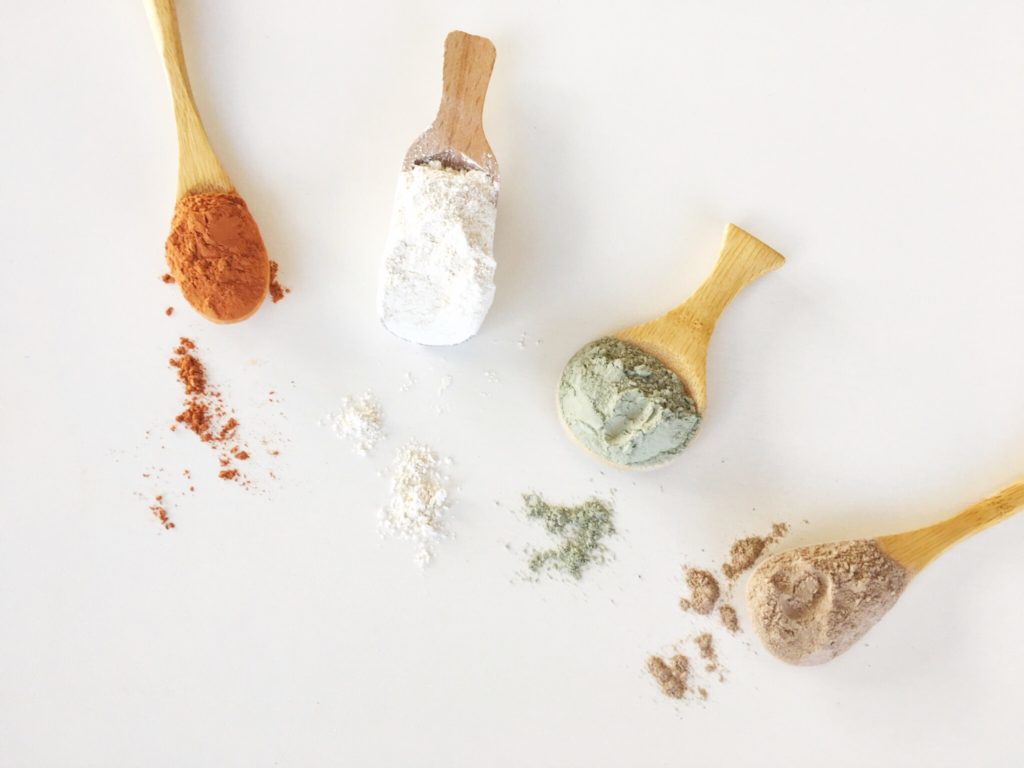
- Clay masks – green and white clays in particular, are fantastic ingredients that help draw impurities and remove excess grease from the skin. In addition, green clay has strong antimicrobial and antibacterial properties.
A clay face mask once or twice per week at the most, followed by a facial oil specifically developed for acne can help keep the breakouts under control. And as a bonus – who couldn’t use some extra pampering time? Put on a face mask, make yourself a nice cup of tea, and enjoy a relaxed 15 minutes to yourself mama!
Part 2: more pregnancy skin concerns next week!
In part two we’ll shed some light on pregnancy skin concerns such as itching and over-sensitivity, melasma and tearing during childbirth, so make sure to join us again next week!
How about you lovely mamas? What skin changes or concerns did you or are you experiencing while your gorgeous baby bump was/is growing?
Lots of love,
Martina

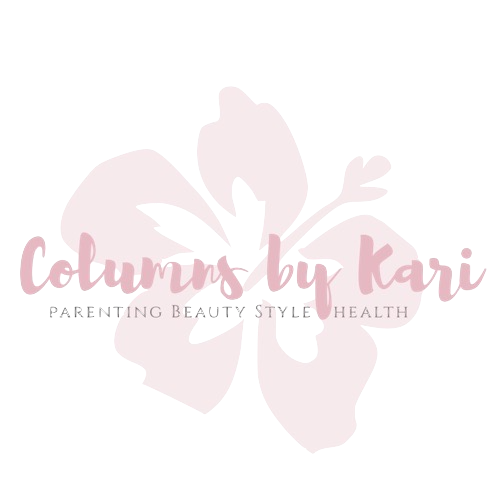
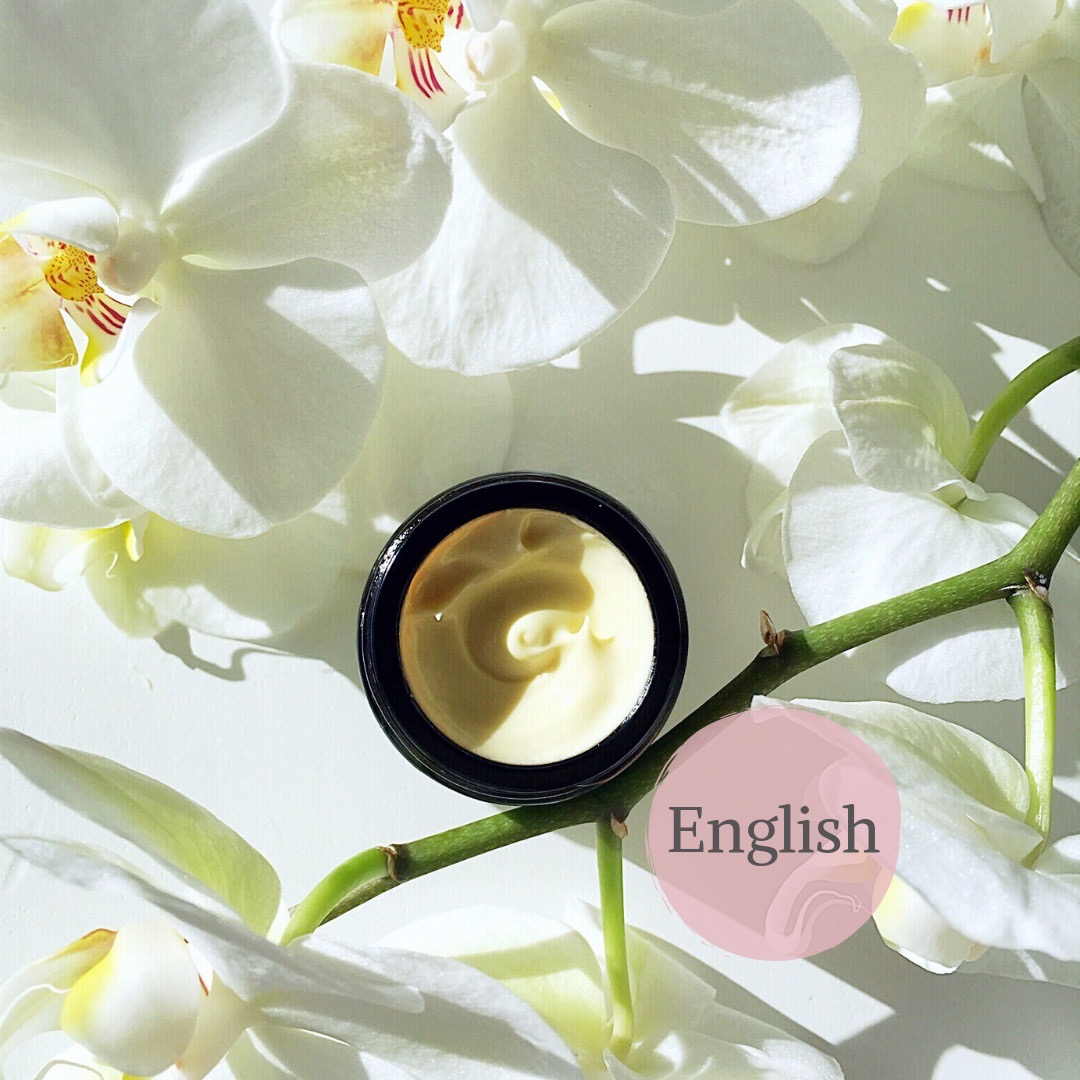
Love this! Tamanu oil is so good during pregnancy. I used it in a DIY foot scrub and on my legs to help my circulation and veins.
Thank you so much dear Helen, I hope you find the post useful! I absolutely love tamanu oil as well, such a fantastic ingredient! Did you see improvement on your veins after using it?